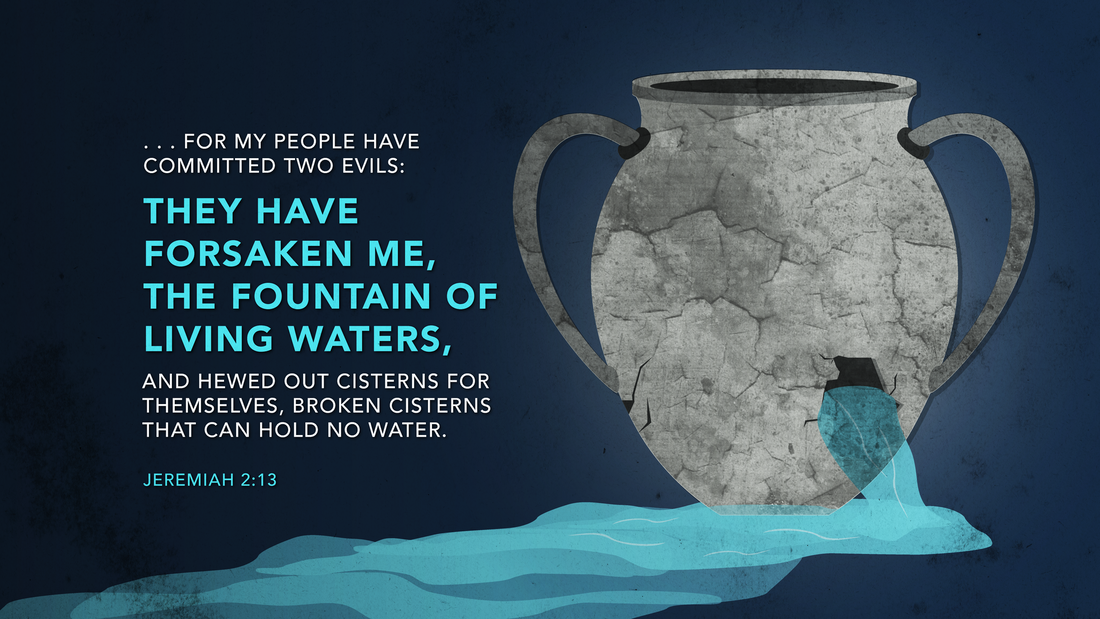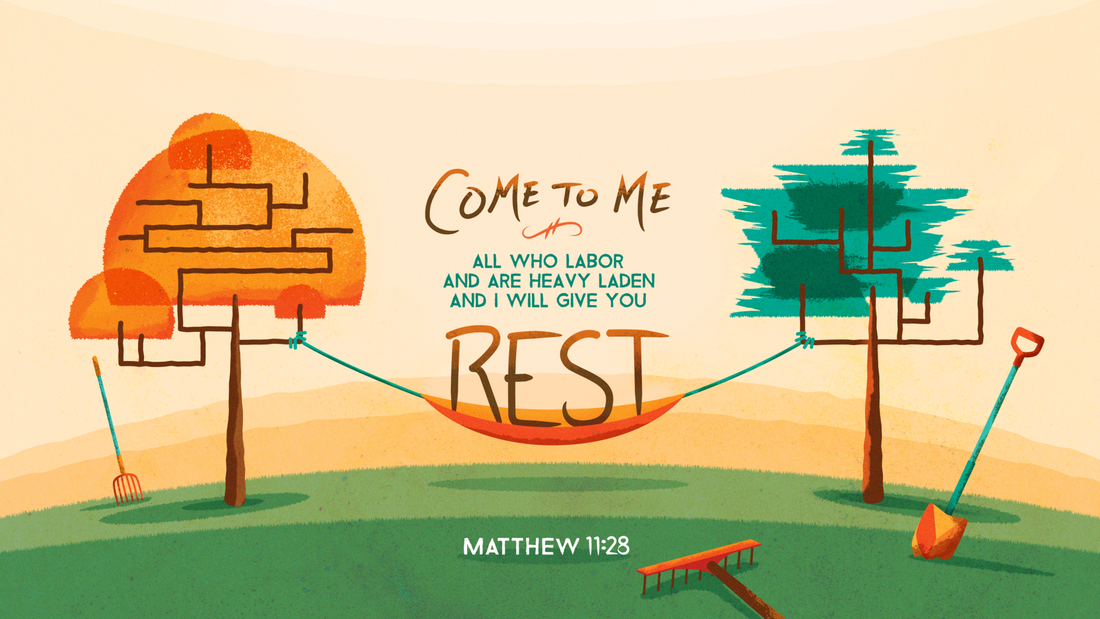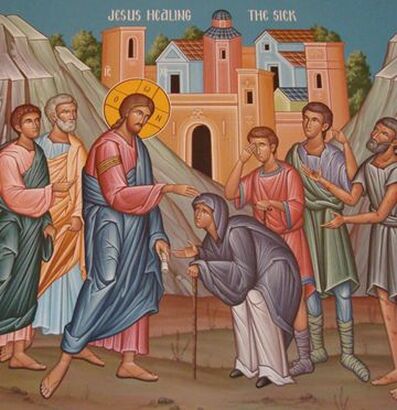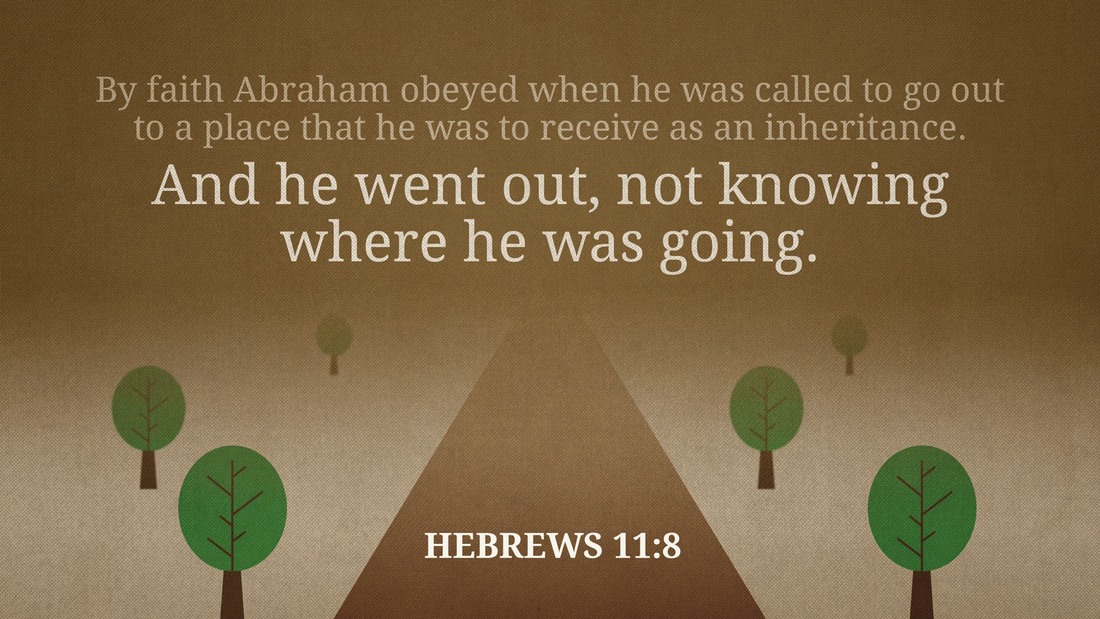|
Scripture Readings: Jeremiah 2:4–13 | Psalm 81:1, 10–16 | Hebrews 13:1–8, 15–16 | Luke 14:1, 7–14
“For all who exalt themselves will be humbled, and those who humble themselves will be exalted.” (Luke 14:11). When I was growing up, we got our water from a hand dug well. If my memory is correct, the well was only about 9 feet deep, and I can remember several hot and dry summers when our well would run dry. Thankfully, our neighbours across the road had an artesian well, and so thanks to their neighbourly kindness, we could still get the water we needed until we got enough rain for our well to fill up again. Then one day my parents decided it was time to find a more long-term solution to our water troubles, and so we had a new well drilled… over 70 feet deep into tough Northernwestern Ontario clay and rock, but in the end we had tapped into the same steady water source as our neighbours… and to my knowledge, that well has never once run dry. We now had a source of water we could truly count on. But how foolish would it have been if we had abandoned that deep-drilled well that never ran dry, and turned back to using that hand-dug well that could not reliably sustain life? That choice would be absurd… but how often are we tempted to act just as foolishly? To turn our backs on the Source of all life, and pursue instead what only leaves us empty and dried up? This is the powerful image that we heard from the prophet Jeremiah this morning: Jeremiah 2:12-13 says “Be appalled, O heavens, at this, be shocked, be utterly desolate, says the Lord, for my people have committed two evils: they have forsaken me, the fountain of living water, and dug out cisterns for themselves, cracked cisterns that can hold no water.” Having tasted the goodness and grace of the Living God, His people had preferred to pursue things that could never actually sustain or satisfy. Foolish. Absurd. And yet it’s a choice that God’s people have made again and again. Jeremiah had shared this message from the Lord at a troubling time in the life of God’s people. Centuries earlier, the Lord had rescued Israel from Egypt, and led them through the wilderness… where He graciously and faithfully provided both food and water for them for forty years. God brought Israel into the land He had promised to give to Abraham and to his descendants… not because of how great or deserving they were… or how much they’d earned honour or respect… but as a sign of God’s own faithfulness and generous love, especially given to those the world tends to overlook as unimportant and lowly. From the start, and all the way through the story of Scripture we hear that God cares deeply for the people of Israel, and invites them into an honoured and sacred place nearest to His heart: calling them to be a people raised up from nothing to share in His own glorious life. But in Jeremiah’s day, things had gone horribly, horribly wrong. The kingdom had turned their back on God, time and time again, and rather than honouring the LORD and walking in His ways, they longed to be like the powerful nations all around them: proud kingdoms and empires, like Egypt to the South, or Assyria and Babylon further to the East. Chasing after their own desires their Kingdom in the Promised Land was torn apart by civil war, and the northern tribes of Israel were overrun by Assyria. The Southern Kingdom of Judah was still being ruled by the family of King David, whom God had sworn to uphold, promising David that: “When your days are fulfilled and you lie down with your ancestors, I will raise up your offspring after you, who shall come forth from your body, and I will establish his kingdom. He shall build a house for my name, and I will establish the throne of his kingdom forever. I will be a father to him, and he shall be a son to me… Your house and your kingdom shall be made sure forever before me; your throne shall be established forever.” (2 Sam. 7:12-14, 16). But even granted such a hopeful promise, Judah had also forsaken their commitments to the LORD, like their kin to the North… their kings and rulers, their priests and peoples had all turned away from the LORD… so now, the prophet Jeremiah had been sent to bring to light their foolishness and unfaithfulness, announcing that walking away from God placed His people in jeopardy of not only losing their kingdom, but everything. And within Jeremiah’s own lifetime the Kingdom of Judah would be lost and its people exiled in Babylon. Let’s hear again the prophets words in this light: as solemn warning which went unheeded. Jeremiah 2:7-8, 11-13. “I brought you into a plentiful land to eat its fruits and its good things. But when you entered you defiled my land, and made my heritage an abomination. The priests did not say, “Where is the Lord?” Those who handle the law did not know me; the rulers transgressed against me; the prophets prophesied by Baal, and went after things that do not profit. Therefore once more I accuse you, says the Lord, and I accuse your children’s children… Be appalled, O heavens, at this, be shocked, be utterly desolate, says the Lord, for my people have committed two evils: they have forsaken me, the fountain of living water, and dug out cisterns for themselves, cracked cisterns that can hold no water.” The prophet’s words point us today to the challenge each generation of God’s people has had to face: will we trust God, and turning to Him receive the gift of life He longs for us to share? Or will we turn from Him, and look for what we need elsewhere? With this question before us, let us turn now to our Gospel reading today, which is about much more than proper party etiquette in the ancient Near East, or today for that matter… rather, it’s another word of warning to God’s people, exposing our own ‘cracked cisterns’, and pointing us to where we can find God’s true life giving ‘water’. St. Luke tells us that Jesus was invited to dine at the house of a Pharisee: a member of the devout Jewish religious movement, focused on obedience to the Law of God so that nothing like the Exile would ever happen to God’s people again. They looked back on their sacred story, the Scriptures, and to the promises of God, like the ones made to King David, and they became convinced that if they were faithful enough to the Law, if they were diligent, and obedient, and righteous enough, then God would take notice and rescue them and finally bring about His good Kingdom at last. But as the Gospels point out, the Pharisees, as devout as they tried to be, also had their own serious blind-spots. Yes, they had stopped chasing after the obvious false gods, and outright wicked ways of their ancestors before the Exile, but they had found new dry and cracked ‘cisterns’ of their own… commitments and practices which seemed to offer them everything they needed, but were actually keeping them from sharing in God’s new life that Christ Jesus was bringing about. And one of these pitfalls, it turns out, was the problem of self-righteousness and pride: seeking their own glory and honour, often at the expense of those around them. N.T. Wright makes this point about pride: “Pride, notoriously, is the great cloud which blots out the sun of God’s generosity: if I reckon that I deserve to be favoured by God, not only do I declare that I don’t need his grace, mercy and love, but I imply that those who don’t deserve it shouldn’t have it.”[1] It’s like we imagine: if we just do everything God asks of us, then we will be someone special… then we can look down on and disregard those who are clearly not as close to God as we are. We’ll be the most important… the most honoured guests at God’s table. How much damage has been done in and by the Christian Church due to this attitude? How many of our neighbours think that this is what we Christians believe about ourselves… and that proving that ‘we are the best’ is the motive behind all that we do? But Christ came to show us… to lead us into another way… to open up for us, and for all, the floodgates of God’s new life. And so St. Luke tells us two things that Jesus says in response to the pride He sees at work in the lives of those gathered at the Pharisees’ house that day: First, instead of chasing after the places of prestige and honour, practice humility… that is, seek to honour and lift up other people, don’t seek after your own glory. And second, instead of only being generous to those who are able to pay you back, open yourself up to the lowly, the poor, the outcast, those easiest to ignore, and those who can never pay you back… that is, care for others and have compassion without expecting anything in return. Humility and generosity, as the antidotes of pride. Both of which seek to bless and bring life to others. Essential components of self-giving love, which Christ shows us is the heart of God’s own divine life… the fountain of living water that alone can sustain and satisfy. Again, Wright contrasts the empty path of pride with the way of God’s self-giving love: “The small-mindedness which pushes itself forward and leaves others behind is confronted with the large-hearted love of God. All Christians are called to the same healthy dependence on God’s love” [that is, humility], “and the same generosity in sharing it with those in need.”[2] This was God’s intentions for His people, for all people from the start! To be shaped by His self-giving, humble, and generous love, so that we can share it with everyone too. And when we had all chased after our own desires… our own faulty visions of what life’s really about… turning to our own dried up and cracked cisterns that can’t give us what we need… that’s when Christ came to call us back to God, to help us walk in His ways, not so that we can boost our egos, and look down on others, and prove how good or important we are… but so we can all come to know what it means to truly be loved… to truly love others… to love the Lord our God wholeheartedly… and for this love to flow out from us into God’s world. This overflowing life of love is what the author of Hebrews is calling us to in our reading this morning: practice mutual love… hospitality especially to strangers… solidarity with those in prison or suffering… marital faithfulness… contentment instead of greed… a willingness to learn from and to be led by others, instead of insisting on our own way. Humility. Generosity. A whole way of life nourished and nurtured by God’s gift of life and love to us in Jesus Christ. Who at the cross did not suffer for His own glory and honour, but rather in humility… poured out His blood and died to bring life unending to us, who least deserved it. Who offered His own body to be broken to save and sustain us, who can never hope to repay His generosity. At the cross, Jesus reveals the heart of God, and invites us to draw near to Him in faith, to let His love raise us up from nothing to share in His own glorious life… and help those around us do the same. Like my childhood neighbours who shared with us the water we needed when our old well ran dry, God wants us His people to be the means of sharing His living spiritual water today… sharing the Good News of Jesus Christ and God’s great love, in words and deeds, with our neighbours, in the hopes that they too will drill down deep in faith, and find Him to be the source of life that can truly satisfy and sustain us all. But to share all this with others, we need to drill down deep in faith ourselves… to keep drawing near to the One who is the true source of our life… leaving behind our own cracked cisterns, and clinging instead to the cross of Christ, that with our Saviour, who humbly gave Himself for us and for all, we might be raised with Him to graciously share in the love of the Living God forever. Amen. [1] Tom Wright, Luke for Everyone (London: Society for Promoting Christian Knowledge, 2004), 175–176. [2] Tom Wright, Luke for Everyone (London: Society for Promoting Christian Knowledge, 2004), 176.
0 Comments
In this week's Old Testament reading from Jeremiah, God uses a powerful image to describe the unfaithfulness of His people: "they have forsaken me, the fountain of living water, and dug out cisterns for themselves, cracked cisterns that can hold no water." (Jeremiah 2:13). The idea of life-giving water is used all throughout the Scriptures to speak of God's own power and presence at work within His creation. Here is a great video by the Bible Project that helps us explores this image a bit more: Our service of Morning Prayer, Bulletin, & Sermon this week can be found here: And our Songs for this week can be found here: Scripture Readings: Isaiah 58:9–14 | Psalm 103:1–8 | Hebrews 12:18–29 | Luke 13:10–17
“When Jesus saw her, he called her over and said, ‘Woman, you are set free from your ailment.’ When he laid his hands on her, immediately she stood up straight and began praising God.” (Luke 13:12-13). It’s good to be back. I’m very grateful for the opportunity these past four weeks to enjoy a bit of a break… to take some time to rest, recharge, and reset… and now to return to the rhythm of our shared Parish life. Again, a big ‘thank you’ to all who offered their gifts to help lead our services of Morning Prayer this Summer. It was a big gift to me knowing that St. Luke’s was in such good hands. As we might know, the gift of rest is a really big deal all throughout the Bible. From the first pages to the last, rest plays a vital role in shaping our hopes for God’s good future, as well as shaping our everyday habits and ways of life in the here and now. The story we live by. Rest shows up in the opening scenes of Genesis as the culmination of God’s act of creation… Genesis 2:1-3 says, “Thus the heavens and the earth were finished, and all their multitude. And on the seventh day God finished the work that he had done, and he rested on the seventh day from all the work that he had done. So God blessed the seventh day and hallowed it, because on it God rested from all the work that he had done in creation.” Here we see the Living God blessing, making holy, and taking part in rest… enjoying His good creation, and teaching us to do the same. Rest shows up again as one of the famous Ten Commandments… the key pillars of God’s covenant with Israel at Mt. Sinai in Exodus. Here resting on the Sabbath is part of the way God’s newly rescued people were to be recreated, transformed from slaves in Egypt into a kingdom of priests and a holy nation. Exodus Chapter 20:8-11: “Remember the sabbath day, and keep it holy. Six days you shall labor and do all your work. But the seventh day is a sabbath to the Lord your God; you shall not do any work—you, your son or your daughter, your male or female slave, your livestock, or the alien resident in your towns. For in six days the Lord made heaven and earth, the sea, and all that is in them, but rested the seventh day; therefore the Lord blessed the sabbath day and consecrated it.” Practicing Sabbath pointed God’s people back to God’s gracious gift of Creation, and gave them a taste every seven days of the peace of paradise. On top of this reminder of God’s gift of Creation, Sabbath was also a reminder of the gift of Salvation… of God’s rescuing work, and their new life shared with Him. In Deuteronomy Chapter 5, the Ten Commandments are repeated… but the reasoning behind the Sabbath rest is stated differently: Instead of pointing back to the seventh day of Creation, Deuteronomy 5:15 says this: “Remember that you were a slave in the land of Egypt, and the Lord your God brought you out from there with a mighty hand and an outstretched arm; therefore the Lord your God commanded you to keep the sabbath day.” Slaves don’t get days off. Their pressed into service until their strength is all used up. But God rescued Israel, not to be slaves, but in order to be a people set free to share in his love… to be blessed, made holy, and serve as signposts of His saving love for all the world to see. Sabbath rest was to remind the whole community of God’s salvation every seven days, inspiring them to respond with wholehearted worship, thanks, and praise. We could go on and on, but you’re probably getting the picture: keeping the Sabbath rest was God’s gift to His people, drawing them back again and again into their sacred story, and into the New Life that God had in store for them. And centuries later, in Jesus’ day, practicing Sabbath rest had become one of the main distinctions between faithful Jews and Gentiles. In this light, “keeping the Sabbath” correctly became a pretty important matter… marking the difference, in many people’s minds, between who was in God’s good books, and who was not. And this tension around what it truly means to practice Sabbath is highlighted in our Gospel reading today, where we are asked to contemplate the question: What does real Sabbath rest look like? Our Gospel reading begins one Sabbath with Jesus teaching in a local synagogue, as God’s people had gathered together for worship. But then we’re told he sees someone, a woman, whose back was bent low… like a slave bearing a terribly heavy load… and she had been bent like this for eighteen years, unable to find full rest. N.T. Wright makes an interesting point about her ailment: “Luke says she had ‘a spirit of weakness’, which probably means simply that nobody could explain medically why she had become bent double. Some today think that her disability had psychological causes; some people probably thought so then as well, though they might have said it differently. Maybe somebody had persistently abused her, verbally or physically, when she was smaller, until her twisted-up emotions communicated themselves to her body, and she found she couldn’t get straight. Even after all the medical advances of the last few hundred years, we are very much aware that such things happen without any other apparent cause.”[1] Whatever the cause, Christ Himself is God’s remedy. Luke tells us that Jesus lays His hands on her, and immediately she is set free and stands tall, praising God for His deliverance. She had been rescued from her spiritual and physical oppression… and was now filled with thankfulness, worshipping Yahweh as someone made new… a taste of re-creation. What a beautiful sight! A life transformed, set free and overflowing with praise to God. But instead of joining in with wholehearted worship, we’re told the leader of the synagogue became “indignant because Jesus had cured on the sabbath… saying to the crowd, ‘There are six days on which work ought to be done; come on those days and be cured, and not on the sabbath day.’” (Luke 13:14). Passionate to protect the sanctity of the Sabbath, this central pillar of the life of the God’s people, the leader of the synagogue can only see Christ’s healing work as a violation of God’s day of holy rest. But God’s blessed and holy rest was in fact what Christ was bringing to life right before their eyes. Jesus was demonstrating what God’s Sabbath is all about. We can hear clear echoes of this in our reading from the book of Isaiah, where the prophet makes a clear link between properly honouring the Sabbath on the one hand, and alleviating the plight of God’s people in their suffering on the other. The point of Sabbath rest is about intentionally stepping into God’s story of redemption and recreation… experiencing God’s grace, again and again, and helping others to do the same. In other words, Jesus was not breaking the sacred Sabbath rest of God by having compassion, and bringing about the healing, restoration, and rescue of others… He was fulfilling it! He was bringing the blessed rest of the LORD to the lives of those in desperate need of it. So Christ calls out the hypocrisy of those like the synagogue leader who thought honouring the Sabbath would mean leaving people in misery, instead of seeing the Sabbath as their means of being made new. “[O]ught not this woman, a daughter of Abraham whom Satan bound for eighteen long years, be set free from this bondage on the sabbath day?” (Luke 13:15-16). What better way to take part in God’s blessed rest than to help others share in it? This is of course only one moment in the story… one Sabbath day encounter… one life transformed… but it’s also a sign of the work Christ Jesus had come to do: to bring about God’s true and eternal Sabbath rest… the ultimate rescue from all that keeps us bound, and broken… bringing us into the fulness of life with the Living God, and making us new, able to stand and worship Him wholeheartedly through the Spirit of God at work in us. St. Luke tells us this story to remind us that this is our story too. That in Christ Jesus we too are invited to look forward in the hope of God’s blessed and holy rest… the restoration and re-creation of God’s good world through the work of the Word made flesh. To remind us that in Christ, we too can experience even now His transforming power, setting us free to worship the Lord in gladness, and rest safe in His loving arms. This story reminds us that Jesus came, not to help us play religious games… or to be our personal miracle worker… He came in the mercy and great compassion of God to save the World. So how are we sharing in the real Sabbath rest that Christ came to bring? Many of us and our neighbours are tired… caught up in the restlessness of our age… unable or unwilling to step back from our own interests, and seek instead God’s life-giving rest. Many of us and our neighbours are bound and broken… feeling completely weighed down and crippled by things like fear… guilt… loneliness… anger… sin… unable to find lasting relief, no matter where we look. Many of us and our neighbours see the Christian life as more of a burden than a blessing… a bundle of obligations, rather than a wholehearted, whole-life response to the wonderful gift of rescue, re-creation, and rest of the Living God, given to us in Jesus Christ, through His saving work of love on the cross. God sees our need for His blessed rest. The Lord knows our world desperately needs to be rescued and renewed. And as Christians, we’ve already been drawn by the Holy Spirit into God’s New Creation, and set free from our sins by the saving work of Jesus Christ. This truly is our sacred story. But it’s so easy to forget it… to go about our week bent low by the burdens that life throws our way. Yet even so, the same Jesus who was filled with compassion for that daughter of Abraham all those long years ago, calls for us to come and follow Him, and find true rest at last. So let us keep coming to Jesus, trusting Him again and again to lead us into God’s rest… not only for ourselves, but so that as a Church community and as individual disciples, and through His Spirit at work in us, we too can become signposts of God’s saving love for all the world to see… helping our neighbours to come to know the rescue, and re-creation, and real Sabbath rest of the Risen Saviour who says: “Come to me, all you that are weary and are carrying heavy burdens, and I will give you rest. Take my yoke upon you, and learn from me; for I am gentle and humble in heart, and you will find rest for your souls. For my yoke is easy, and my burden is light.” (Matthew 11:28-30). Amen. [1] Tom Wright, Luke for Everyone (London: Society for Promoting Christian Knowledge, 2004), 165–166.
Our service of Morning Prayer, Bulletin, & Sermon this week can be found here: And our Songs for this week can be found here: The reading of Holy Scripture together as a community has been a central part of Christian worship throughout the Church’s long history, and it has deep roots within the spiritual and communal practices of Israel. We read Holy Scripture together not simply to learn new information about God’s dealings with humanity in the past, but also to listen in faith to what the Living God is saying to us His people today. We listen to His Word to draw closer to Him, and to one another. For one more week, we will be engaging with the Scriptures in a more open-ended way: carving out some time for silent contemplation, as well as sharing some questions for further reflection, rather than having our usual Sermons. After every Scripture Reading in the At-Home Morning Prayer service, we’re all invited to take a few moments (1-2 minutes) in silence to reflect upon the passage, and how God’s Spirit might be addressing us through it, as individuals or as a community. In those moments, pay attention to any words, ideas, or images that stand out to you. In the silence afterwards, ask God to help you hear His heart for you today. After the Gospel is read, and we’ve taken a moment to in silence to reflect upon it, review the Reflection Questions for the week that Pastor Rob has prepared to help us dig in a bit deeper. Our service of Morning Prayer, Bulletin, & Reflection Questions this week can be found here: And our Songs for this week can be found here: The reading of Holy Scripture together as a community has been a central part of Christian worship throughout the Church’s long history, and it has deep roots within the spiritual and communal practices of Israel. We read Holy Scripture together not simply to learn new information about God’s dealings with humanity in the past, but also to listen in faith to what the Living God is saying to us His people today. We listen to His Word to draw closer to Him, and to one another. For the next two weeks, we will be engaging with the Scriptures in a more open-ended way: carving out some time for silent contemplation, as well as sharing some questions for further reflection, rather than having our usual Sermons. After every Scripture Reading in the At-Home Morning Prayer service, we’re all invited to take a few moments (1-2 minutes) in silence to reflect upon the passage, and how God’s Spirit might be addressing us through it, as individuals or as a community. In those moments, pay attention to any words, ideas, or images that stand out to you. In the silence afterwards, ask God to help you hear His heart for you today. After the Gospel is read, and we’ve taken a moment to in silence to reflect upon it, review the Reflection Questions for the week that Pastor Rob has prepared to help us dig in a bit deeper. Our service of Morning Prayer, Bulletin, & Reflection Questions this week can be found here: And our Songs for this week can be found here: |
Rev. RObRev. Rob serves as the Priest-in-Charge at St. Luke's Gondola Point, and as the School Chaplain at Rothesay Netherwood School Archives
June 2024
Categories
All
|
|
5 Quispamsis Road, Quispamsis NB, E2E 1M2
Mail to: 12 Quispamsis Road, Quispamsis NB E2E 1M2 |
Contact Us
Parish Phone: 506-847-3670 | www.stlukesgp.ca | www.facebook.com/StLukesGP/ Rev. Rob: 506-608-1772 | [email protected] |
Proudly powered by Weebly







 RSS Feed
RSS Feed
